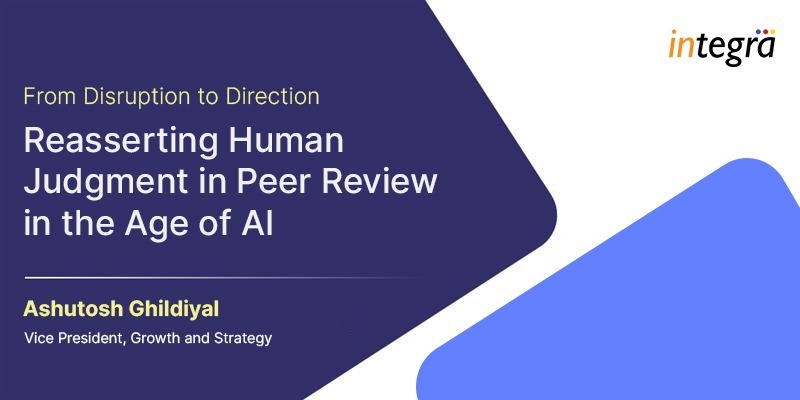
Peer review is the cornerstone of academic integrity, ensuring that published research meets the highest standards of quality and reliability. However, the peer review process is under increasing strain due to a surge in manuscript submissions. This has led to widespread reviewer fatigue, threatening the quality, timeliness, and credibility of the entire academic publishing process.
Understanding Reviewer Fatigue
Reviewer fatigue, often referred to as burnout, occurs when peer reviewers—typically academics or researchers—become overwhelmed by the growing volume of manuscripts they are asked to review. This strain can lead to delays, lower-quality reviews, and a decreased willingness to participate in the peer review process.
Key Factors Contributing to Reviewer Fatigue:
- High Volume of Submissions: The global increase in research output has led to a surge in manuscript submissions, placing a heavier burden on reviewers.
- Time Constraints: Academics often juggle multiple professional responsibilities, leaving little time for thorough reviews.
- Lack of Incentives: Peer reviewing is generally a voluntary activity with limited direct rewards or recognition.
- Repeated Requests: A small pool of expert reviewers is frequently called upon, exacerbating the burden.
- Complexity of Research: The increasing specialization and complexity of research make reviews more time-consuming.
The Impact of Reviewer Fatigue
Reviewer fatigue has several negative consequences for the scholarly publishing ecosystem:
- Decreased Review Quality: Overburdened reviewers may provide rushed or superficial assessments, compromising the quality of the peer review process.
- Delayed Publication Timelines: A shortage of willing reviewers leads to longer review cycles, delaying the dissemination of research.
- Reduced Reviewer Pool: As fatigue grows, fewer scholars are willing to engage in peer review, creating a vicious cycle.
- Damage to Academic Reputation: The credibility of the peer review system is jeopardized, potentially diminishing trust in published research.
An article published by Cambridge University Press titled “Reviewer Fatigue? Why Scholars Decline to Review Their Peers’ Work” investigates reviewer fatigue among political science scholars, shedding light on why scholars decline to review manuscripts. The findings show the many reasons beyond just too many review requests:
- Reviewer Fatigue: Overload of review requests accounts for 14.1% of declines (or 19.7% of those who provided a reason).
- Busy Professional and Personal Lives: A larger proportion of scholars cited being “too busy,” making up 24.8% of declines overall (or 34.6% of those who provided a reason).
- Acceptance Rates: Despite concerns about fatigue, 82.8% of scholars responded to review requests, with 60% accepting and completing their assignments, indicating a high willingness to contribute when time allows.
Strategies for Scholarly Publishers to Alleviate Reviewer Fatigue
Scholarly publishers play a crucial role in mitigating reviewer fatigue and fostering a sustainable peer review ecosystem. Here are some effective strategies:
- Recognition and Incentives:
-
- Tangible Rewards: Offer certificates, discounts on publication fees, or access to journal content.
- Public Recognition: Acknowledge reviewers’ contributions in the journal or on its website.
- Streamlined Review Processes:
-
- Efficient Manuscript Management Systems: Implement systems that reduce administrative burdens on reviewers.
- Clear and Concise Review Forms: Simplify the review process to make it more straightforward and less time-consuming.
- Reviewer Training and Support:
-
- Training Programs: Offer training to help reviewers understand expectations and conduct high-quality reviews efficiently.
- Resources and Guidelines: Provide access to guidelines and other helpful materials.
- Broadening the Reviewer Pool:
-
- Recruit New Reviewers: Actively recruit new reviewers, including early-career researchers eager to gain experience.
- Diversify the Pool: Include international reviewers and those from underrepresented disciplines.
- Flexible Deadlines:
-
- Flexible Timelines: Allow more flexible timelines for completing reviews, especially for complex or lengthy manuscripts.
- Extensions: Provide extensions when needed, recognizing that reviewers have other commitments.
- Reduced Review Load:
-
- Limit Review Requests: Restrict the number of manuscripts a reviewer is asked to review within a certain timeframe.
- Rotation System: Implement a rotation system to distribute the workload more evenly.
- Automated Tools:
-
- AI and Machine Learning Tools: Use tools to assist with initial manuscript screening and identify potential reviewers.
- Plagiarism and Formatting Tools: Implement tools to check for plagiarism or basic formatting issues, reducing the burden on human reviewers.
- Reviewer Support:
-
- Mentorship Programs: Offer training and support for new reviewers.
- Peer Support Networks: Create opportunities for reviewers to connect and share experiences.
Alleviating Reviewer Burnout with AI: Revolutionizing the Peer Review Process
Reviewer burnout is a growing concern in the scholarly publishing industry, as the increasing volume of manuscript submissions and the demand for rapid publication timelines place significant pressure on reviewers. To address this challenge, AI tools are being integrated into the peer review process to streamline various tasks, reduce workload, and ultimately alleviate reviewer burnout. Here’s how AI is transforming the review process:
- Automated Review Summarization: AI can generate concise summaries of peer review reports, providing a clear and efficient overview of key feedback. This allows editors to make informed decisions more quickly, freeing up time for reviewers to focus on more complex evaluations.
- AI-Based Translation for Accessibility and Inclusivity: AI-powered translation tools support non-native English-speaking reviewers and authors by translating manuscripts and reviews with high accuracy, enhancing the diversity and reach of the peer review process.
- AI-Based Fact-Checking for Accuracy: AI tools assist reviewers by automatically verifying facts, data, and references in manuscripts. This reduces the cognitive load on reviewers and enhances the reliability of the review process.
- Reviewer Matching Optimization: AI optimizes the assignment of manuscripts to reviewers by analyzing reviewer profiles, expertise, and workloads. This ensures a fair distribution of reviews and improves the quality and relevance of peer reviews.
- AI-Powered Peer Review Reports: AI-generated peer review reports provide an additional layer of analysis and insight, helping to identify potential issues that may have been overlooked by human reviewers, leading to higher-quality publications.
The Impact of AI on Reviewer Well-Being
The implementation of AI tools in the peer review process has the potential to significantly improve the well-being of reviewers by automating routine tasks, enhancing accuracy, and optimizing workload distribution. As a result, reviewers can focus on the more intellectually rewarding aspects of the review process, reducing the risk of burnout and maintaining high standards of scholarly evaluation.
Supporting Editorial Teams with AI
AI also enhances the efficiency and effectiveness of editorial teams:
- AI-Driven Editorial Support: Platforms like Author Pilot provide advanced language and technical assessments, generate quality reports, and automate manuscript triage.
- Automated Editing: AI-powered editing tools, such as Wyse, ensure manuscripts are clear, accurate, and adhere to editorial standards.
- Data-Driven Reviewer Recommendations: AI optimizes reviewer matching by analyzing expertise, past performance, and availability.
- Research Integrity Checks: AI tools detect academic misconduct by analyzing textual similarities, citation patterns, and other indicators.
- Automated Peer Review Summarization: AI generates concise summaries of peer reviews, helping editors make informed decisions and providing clearer feedback to authors.
AI-Powered Peer Review Reports: Enhancing the Review Process with AI Agents
The peer review process is crucial for maintaining the quality and integrity of scholarly research. However, with the increasing volume of manuscript submissions and the growing complexity of research, traditional peer review methods face significant challenges. Platforms like Quixl have developed AI agents capable of generating peer review reports that complement human peer reviews, creating a more efficient and robust review process.
Integrating AI with Human Peer Review: A Balanced Approach
AI-generated peer review reports offer several advantages when used alongside traditional human reviews:
- Speed and Efficiency: AI agents can process and analyze manuscripts rapidly, generating preliminary review reports in a fraction of the time it takes human reviewers. This can significantly reduce the time to publication, particularly for high-volume journals.
- Consistency and Objectivity: AI agents provide consistent and objective evaluations based on predefined criteria, ensuring that all manuscripts are assessed against the same standards.
- Identifying Key Areas of Focus: AI agents can highlight specific areas of a manuscript that may require closer scrutiny by human reviewers, such as statistical analysis or data integrity.
- Augmenting Reviewer Expertise: AI-generated reports can provide additional insights, especially in areas where human reviewers may lack specific expertise.
- Reducing Reviewer Fatigue: By handling routine or technical aspects of the review process, AI agents alleviate the burden on human reviewers, allowing them to focus on more nuanced elements of the manuscript.
The Future of Peer Review: Human-AI Collaboration
The integration of AI-generated peer review reports represents a significant step forward in the evolution of scholarly publishing. By combining the strengths of AI—speed, objectivity, and data processing—with the irreplaceable expertise and judgment of human reviewers, the peer review process can become more efficient, rigorous, and fair.
As platforms like Quixl continue to refine their AI agents, the potential for AI to play a supportive role in peer review will only grow. By embracing this technology, publishers and editors can enhance the quality of peer reviews, accelerate publication timelines, and ultimately improve the dissemination of scholarly knowledge.
Enhancing Scholarly Publishing with AI
AI-powered peer review reports and other AI-assisted tools, when used in conjunction with traditional human reviews, have the potential to revolutionize the peer review process. These tools offer speed, consistency, and insights that can complement and enhance the work of human reviewers. By integrating AI into the peer review process, scholarly publishing can address the challenges of increasing manuscript submissions and the rising demands on reviewers. The future of peer review lies in the collaborative efforts of humans and AI, working together to ensure the integrity and quality of academic research.
As AI technology continues to evolve, its role in supporting and enhancing the peer review process will only grow, offering new possibilities for efficiency, accuracy, and fairness in scholarly publishing. Embracing AI as a tool for peer review is not just a solution to the challenges faced by the publishing industry today—it is a step toward a more resilient and future-proof system of academic evaluation.
At Integra, we celebrate the contributions of editorial professionals and recognize the invaluable service they provide to the scholarly community. We empower them with our advanced tools, acknowledging their crucial role in curating and disseminating research that drives the advancement of human knowledge. As a trusted partner, we deliver human-led, technology-assisted solutions tailored for editorial, research integrity, and peer review management.
Integra is committed to delivering exceptional quality, efficiency, and innovation to our clients. Let us help you streamline your publishing workflows and achieve your goals.
Are you looking to explore how AI can alleviate reviewer fatigue? Integra can help—let’s talk!
Author Bio
Ashutosh Ghildiyal is the Vice President of Growth and Strategy at Integra, a leading global provider of publishing services and technology. With over 18 years of experience in scholarly publishing, he is adept at driving sustainable growth and expanding the company’s global presence. Ashutosh is deeply committed to advancing the scholarly publishing community and shaping the future of the industry.
Recent Blogs

Print, Pedagogy, and AI: The New Architecture of Educational Publishing

From Disruption to Direction: Reasserting Human Judgment in Peer Review in the Age of AI


